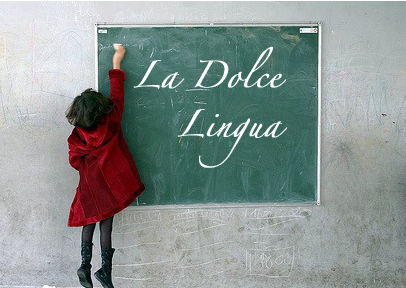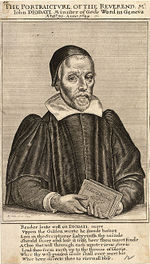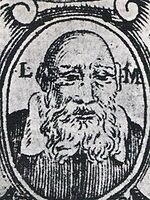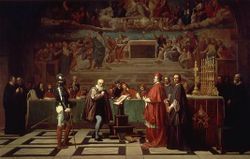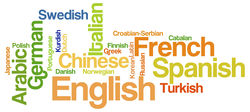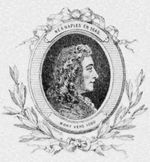Difference between revisions of "Category:Italian language--1600s"
| Line 87: | Line 87: | ||
}} | }} | ||
[[File:Alessandro Stradella.jpg|thumb|150px|[[Alessandro Stradella]]]] | [[File:Alessandro Stradella.jpg|thumb|left|150px|[[Alessandro Stradella]]]] | ||
|} | |} | ||
Revision as of 16:01, 5 December 2019
History of Research (1600s) -- Notes
Latin remained the main scholarly language for Italian-speaking scholars in the 17th century. However, some remarkable works of scholarship were published in the period in Italian language.
In 1603 the Italian translation of the Christian Bible by Giovanni Diodati was the first in that language done directly from the original texts.
In 1632 the book of Antonio Bosio, Roma Sotterranea, made available the results of his pioneering investigations and studies on the Roman catacombs; the international success of the book (also translated in Latin and German) opened the field of Christian Archaeology.
Another international success was the publication in 1637 of the Historia de' riti hebraici by Italian-Jewish scholar Leone Modena. The work focused on the present, not the past of Jewish life and customs, and made only occasional references to Jewish history and the Second Temple period in particular. Yet it had a tremendous impact in the field of Jewish and Christian Origins. Translated in English, French and Dutch, was the first modern work to provide a first-hand introduction to post-biblical Judaism, written by a Jew to non-Jews.
In 1667 Lumi riflessi by Filippo Picinelli was one of the first works to use systematically non-canonical texts for the understanding of Christian Scriptures.
Most works in Italian language in the 17th century were works of fiction. Some Italian oratorios in particular gained international success and helped popularize some of the major events of Second Temple Jewish history.
Pages in category "Italian language--1600s"
The following 95 pages are in this category, out of 95 total.
1
- I meriti delle donne (1600 Fonte), book
- La nobilta, et l'eccellenza delle donne, co' diffetti, et mancamenti de gli huomini (The nobility and excellence of women, and the defects and vices of men / 1600 Marinella), book
- Giudetta (1602 Lottini), play
- La Bibbia (The Bible / 1603 Diodati), book
- La vita di S. Longino martire cavalier mantoano (1605 Magagnati), poetry
- Le glorie immortali de' trionfi, et heroiche imprese d'ottocento quarantacinque donne illustri (1609 Ribera), book
- La Reina Ester (1615 Cebà), poetry
- La Maddalena (Magdalene / 1617 Andreini), play
- La Maddalena (Magdalene / 1617 Monteverdi, Rossi, Effrem, Ghivizzani), theatre music
- Dialogo del Figliuol Prodigo (The Prodigal Son / 1619 Anerio), sacred dialogue
- Dialogo della conversione di San Paolo (Conversion of St. Paul / 1619 Anerio), sacred dialogue
- Dialogo di David (David and Goliath / 1619 Anerio), sacred dialogue
- Ester (1619 Modena), play
- Delle Antichità et Guerre giudaiche (1620 Lauro, Berna), book
- Santa Maria Maddalena (1621 Cicognini), play
- Vita di Giesu Christo figliuolo di Dio, et di Maria sempre Vergine (Life of Jesus Christ and Mary / 1625 Santarelli), book
- La Giudea distrutta da Vespasiano e Tito (1627 Finella), play
- Esther (1628 Della Valle), play
- Iudit (1628 Della Valle), play
- La strage degl'innocenti (The Slaughter of the Innocents / 1632 Marino), poetry (Italian)
- Le turbolenze d'Israele, seguite sotto 'l governo di duo rè Seleuco il Filopatore ed Antioco il Nobile (1633 Manzini), book
- Maria Maddalena peccatrice e convertita (1636 Brignole-Sale), novel
- Vita di Tobia (1637 Manzini), book
- (++) Historia de' riti hebraici (1637 Modena), book
- L’ebrea famelica (The Famishing Jewess / 1640 Caputi / Vittori), oratorio (music & libretto)
- Vita di san Paolo apostolo (Life of St. Paul the Apostle / 1641 Laurenti), book
- L'incoronazione di Poppea (The Coronation of Poppaea / 1642 Monteverdi / Busenello), opera (music & libretto), Venice premiere (cast)
- L'orto di Getsemani glorioso nei sudori di Cristo (1661 Arresti), oratorio
- Licenza di Giesù da Maria (1661 Arresti), oratorio
- S. Pietro piangente (St. Peter Weeping / 1664 Ziani / Guadagni), oratorio (music & libretto), Vienna premiere
- La strage degli innocenti (1665 Bertali), oratorio
- Il Nerone (Nero / 1666 Biancolelli), play
- Il Tito (Titus / 1666 Cesti / Beregani), opera (music & libretto), Venice premiere
- Le lachrime di S. Pietro (The Tears of St. Peter / 1666 Sances / Sbarra), oratorio
- La Pellegrina ingrandita; ovvero, La Regina Ester (1666 Torre), play
- Giona profeta (The Prophet Jonah / 1667 Pedrazzoli / Draghi), oratorio
- Lumi riflessi (Reflected Lights / 1667 Picinelli), book
- Il Tito (1668 Binitti), opera
- La Giuditta (Judith / 1668 Cazzati), oratorio
- La Giuditta (Judith / 1668 Draghi), oratorio
- S. Andrea Apostolo (1672 Benevoli / Benigni), oratorio
- Claudio Cesare (Claudius Caesar / 1672 Boretti / Aureli), opera (music & libretto), Venice premiere
- Li Maccabei (The Maccabees / 1674 Bicilli / Mazzei), oratorio
- Lo sposalizio di Rebecca (1675 Arresti), oratorio
- Il Nerone (Nero / 1675 Boccaccio), play
- San Giovanni Battista (St. John the Baptist / 1675 Stradella / Ansaldi), oratorio
- Gli sponsali d'Ester (The Nuptials of Esther / 1676 Legrenzi / Orsi), oratorio
- La passione di Giesù Christo (1677 Cherici), oratorio
- Il Sansone (1677 Colonna / Balbi), oratorio
- Il Nerone (Nero / 1677 Liberati / Ficieno), oratorio (music & libretto)
- Ester liberatrice del popolo ebreo (Esther Liberating the Jewish People / 1677 Stradella / Orsini), oratorio
- Il sacrificio di Abele (The Sacrifice of Abel / 1678 Melani / Pamphili), oratorio
- Il Vespasiano (Vespasian / 1678 Pallavicino / Corradi), opera (music & libretto), Venice premiere
- Il Nerone (Nero / 1679 Pallavicino / Corradi), opera (music & libretto), Venice premiere
- Passio secundum Ioannem (St. John Passion / 1679 Scarlatti), oratorio
- Agar et Ismaele esiliati (1683 Scarlatti / Totis), oratorio
- La madre de' Maccabei (The Mother of the Maccabean Martyrs / 1685 Mercuriali / Gigli), oratorio
- Il Mosè legato di Dio e liberatore del popolo ebreo (Moses, Legate of God and Liberator of the Hebrew People / 1686 Colonna / Giardini), oratorio (music & libretto), Modena premiere
- La Giuditta (Judith / 1686 Ziani), oratorio
- Agrippina in Baia (1687 Bassani / Contri), opera (music & libretto), Ferrara premiere
- L'Erodiade; ovvero, La morte di S. Giovanni Battista (Herodias; or, The Death of St. John the Baptist / 1687 Legrenzi / Neri), oratorio
- La madre de' Maccabei (The Mother of the Maccabean Martyrs / 1688 Fabbrini / 1685 Gigli), oratorio
- La fornace di Nabuc di Nasor (1688 Pagano), oratorio
- Il Giona (Jonah / 1689 Bassani / Ambrosini), oratorio
- Il Giona (Jonah / 1689 Vitali / Bartoli), oratorio
- La Maddalena a' piedi di Cristo (Magdalene at the Feet of Christ / 1690 Bononcini / Forni), oratorio (music & libretto), Modena premiere
- Bettuglia liberata (1690 Colonna / Bergamori), oratorio
- Çeta e profetëve / L'infallibile verità della cattolica fede (The Bands of the Prophets / 1691 @1685 Bogdani), book (Albanian-Italian ed.)
- Gerusalemme destrutta da Tito (1691 Cattani / Fineschi), oratorio
- L'ingresso alla gioventù di Claudio Nerone (The Coming of Age of Nero / 1692 Giannettini / Neri), opera (music & libretto), Modena premiere
- Nerone fatto Cesare (Nero Made Emperor / 1692 Perti / Noris), opera (music & libretto), Venice premiere
- Le nozze di Tobia (1692 Viviani / Fineschi), oratorio
- La passione di Cristo (The Passion of Christ / 1693 Ariosti / Arnoaldi), oratorio (music & libretto), Modena premiere
- La Giuditta, "Rome version" (1693 Scarlatti / Ottoboni), oratorio
- Il viaggio di Tobia (1695 Casini), oratorio
- L'Esterre (Esther / 1695 Muratori-Scannabecchi / Bergamori), oratorio
- Nerone fatto Cesare (Nero Made Emperor / 1695 Scarlatti / @1692 Noris), opera (music), Naples premiere
- La nascita di Samuele (1696 Casini), oratorio
- I fanciulli babilonesi (The Babylonian Children / 1696 Orlandini), oratorio
- La Mariamne (Mariamne / 1696 Ruggieri / Burlini), opera (music & libretto), Venice premiere
- Il figliuol prodigo (The Prodigal Son / 1697 Biffi / Ciallis), oratorio
- La fuga in Egitto (1697 Casini), oratorio
- Juda Machabeus (1697 Pulci), oratorio
- La Giuditta, "Cambridge version" (1697 Scarlatti / Ottoboni), oratorio
- Il ritorno di Tobia (1698 Badia / Del Negro), oratorio
- La Maddalena a' piedi di Cristo (Magdalene at the Feet of Christ / 1698 Caldara / Sandrinelli, @1690 Forni), oratorio (music & libretto), Venice premiere
- Giacobbe in Mesopotamia (1698 Casini), oratorio
- La fortezza al cimento (Nero / 1699 Aldrovandini / Silvani), opera (music & libretto), Venice premiere
- La decollazione di S. Giovanni Battista (1699 Ingegneri), oratorio
Media in category "Italian language--1600s"
This category contains only the following file.
- 1632 * Bosio.jpg 632 × 895; 104 KB
